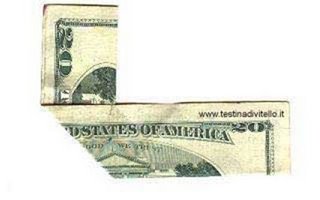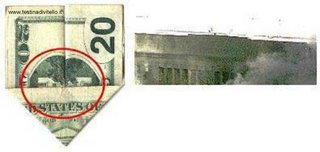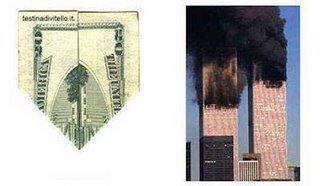Have you ever thought what happens to the food after you have taken it into your mouth?
How those big steak pieces end up into small amino acids.....how those rice ends up giving you glucose?
How those Fatty Food you eat, ends up into fatty acid and glycerol? and where do all the extra things go?
So today I m tell you everything about digestion....from the time you put your food into your mouth till the time you go shit and throw the extra stuff out of your body!!
MOUTH
In the mouth, the food is digested physically by your teeth and also the salivary glands in your mouth produces saliva, Saliva contains an enzyme called Salivary Amylase (ptyalin). Salivary Amylase keeps the pH in the mouth basic.Salivary Amylase will digest starch in your food to Maltose, which will later get digested to Glucose in the Duodenum.
S.Amylase
Starch -------------> Maltose
NOTE: NOT ALL AMYLUM (STARCH) IS DIGESTED TO MALTOSE IN THE MOUTH, SOME ARE DIGESTED IN THE STOMACH (VERY LITTLE) AND SOME IN THE DUODENUM
The food is mixed with the saliva and is now called a Bolus. The bolus travels down the oesophagus by Peristalsis movement. A wave of contraction is made on the walls of the oesophagus just above the food bolus, this pushes the bolus down, another wave is made and by these waves the food is passed into the abdomen (stomach) through the Cardiac Sphincter present on the end of the oesophagus and just above the abdomen.Cardiac Sphincter also prevents the regurgitation of food from the stomach back into the oesophagus.
STOMACH
when peptides are detected in the stomach, hormone gastrin is released into the bloodstream. This hormone causes the gastric glands in the lining of the stomach wall to produce Gastric Juice. Gastric juice is an acid juice (pH 1 - 3) its main components are:
1. HCl
2.Renin
3.Pepsinogen
4.Gelatinase
5.Gastric Amylase
6. Gastric Lipase
HCl - HCl (Hydrochloric Acid) keeps the stomach pH acidic. As HCl is a strong acid, it will kill most of the bacteria present in the food. It has another main function that is to convert Pepsinogen into Pepsi
HCl
Pepsinogen --------> Pepsin
Renin - Renin is an enzyme which has the function of digesting only milk proteins to peptides
Renin
Milk Proteins -----------> Peptides
Pepsinogen - Pepsinogen is activated by HCl into Pepsin. Pepsin digests other proteins present in the food to smaller peptides fragments.
Pepsin
Other Proteins ----------> Peptides
Gelitnase - digests type I and type V gelatin
and type IV and V collagen
, which are proteoglycans
in meat.
Gastric Amylase - Digests starch that was not digested in the mouth, it is of minor significance in the stomach.
Gastric Lipase - Acts on butter fat digesting it into Fatty acids and Glycerol.
These are all the digestion that takes place in the stomach. The remaining food now called as Chyme is passed through the abdomen into the duodenum through the Pyloric Sphincter present at the lower end of the abdomen.
DUODENUM
Brunner's Gland are duodenal glands located through out the duodenum. The main function of this gland is to produce an alkaline solution (contain bicarbonate ion) in order to:
1. To protect the duodenum from the acidic content of chyme.
2. Provide an alkaline condition for the intestinal enzymes to be active, thus enabling absorption to take place.
3. Lubricating intestinal walls.
There are also 3 juices secreted in the Duodenum:
1. Bile Juice
2. Pancreatic Juice
3. Intestinal Juice
Bile Juice - Bile Juice is secreted by the gall bladder. After being secreted by the gall bladder it travels in the bile duct which opens into the duodenum. Bile Juice contains Bile Salt helps to emulsify fats, that is they break them down into small globules which are easily digested by the enzyme lipase present in the pancreatic juice.
Pancreatic Juice - Secreted by the pancreas, the pancreatic juice travels in the pancreatic duct which opens into the duodenum. There are enzymes present in the pancreatic juice:
1. Trypsinogen - trypsinogen is an inactive form of trypsin, it is activated by the enzyme entirokinase present in the intestinal juice. Trypsin has the same function like that of Pepsin that is - it breaks down protein to smaller peptide fragments.
2. Chymotrypsin - same function as that of trypsin.
3. Steapsin (Pancreatic Lipase) - Steapsin acts on fats converting them into Fatty acids & Glycerol.
4. Carboxypolypeptidase - This enzyme converts peptides into Amino Acid
5. Pancreatic Amylase - Digests Starch
Intestinal Juice - Intestinal juice is secreted by the intestinal walls, they contain the enzymes:
1. Entirokinase - entirokinase activates trypsinogen to trypsin.
2. Eripsin - Eripsin converts polypeptides to amino acids.
3. Maltase - Digests Maltose to glucose.
4. Sucrase - Digests sucrose into glucose and fructose.
5. Lactase - Digests lactose into glucose and galactose.
ILLEUM
The walls of Illeum are made up of finger like projections known as Villi. Villi are made of up microvilli. Therefore, illeum has a very large surface area. There main function here is to absorb Vitamin B12, bile salts and absorption of products of digestion. Cells lining the illeum also secrete protease and carbohydrase enzymes responsible for final stages of proteins and carbohydrates enzyme. The villi contain large numbers of capillaries which take the amino acids and glucose produced by digestion to the liver through the hepatic portal vein.Lacteals are small lymph vessels, and are present in villi. They absorb fatty acids and glycerol, the products of fat digestion. The lacteal transports these Fatty acids and glycerol to the lymphatic system for filtering. The Fatty Acids and Glycerol are combined with the blood as lymph joins blood at the right and left subclavian veins.
LARGE INTESTINE
The large intestine is mainly responsible for storing waste, reclaiming water, maintaining the water balance, and absorbing some vitamins, such as vitamin K.
The large intestine is divided into the cecum, colon, rectum and anal canal
Cecum - there is no current debate about the use of the cecum.
Colon - Its primary purpose is to extract water from the feces (faeces, however you call it!)
Rectum - The rectum ampulla acts as a temporary storage facility for feces. As the rectal walls expand due to the materials filling it from within, stretch receptors from the nervous system located in the rectal walls stimulate the desire to defecate. If the urge is not acted upon, the material in the rectum is often returned to the colon where more water is absorbed. If defecation is delayed for a prolonged period, constipation and hardened feces results.
Anal Canal - The Feces are passed along from the rectum into the anal canal and they are then eliminated out of the body via the anus.
------------------------------------------------------
Here we go u r done, this is my own
compilement of the Digestion of food but i have taken
information from many website
including Wikipedia and other sites
wich i cannot remember the site's link, but
thx to them!
and also tell me if i have posted any rong information, i will change it rite away!




